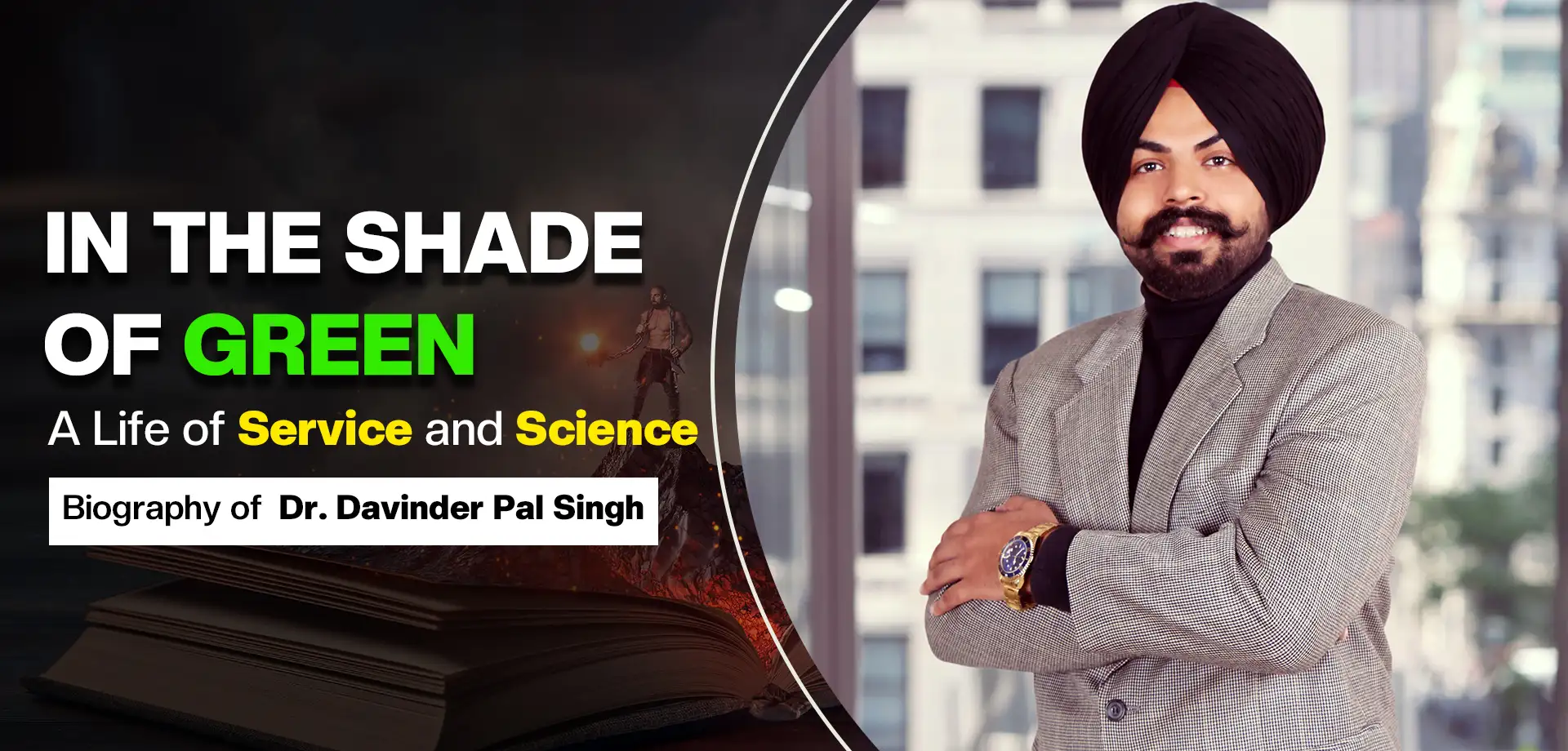
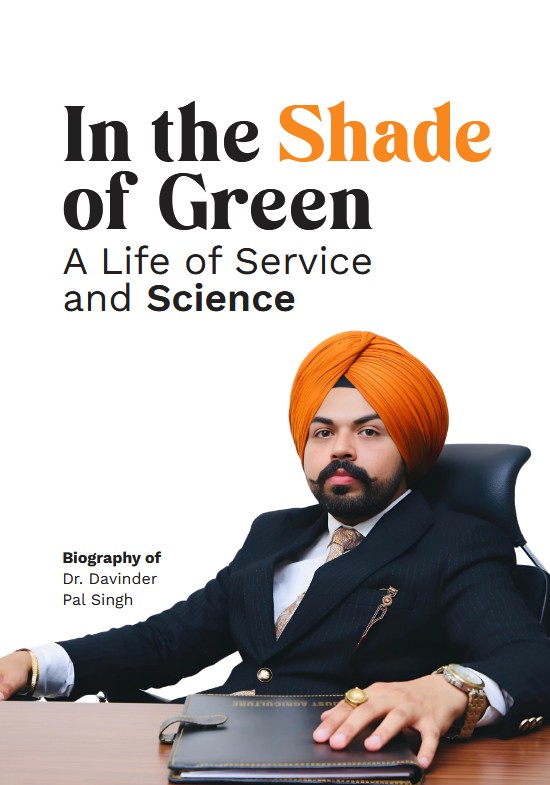
"The ultimate goal of farming is not the growing of crops, but the cultivation and perfection of human beings."
Introduction
In every generation, there are individuals whose lives resonate far beyond their personal achievements—lives that become a source of inspiration, transformation, and enduring legacy. Dr. Davinder Pal Singh is one such individual.
Born and raised in Punjab, India—a land where agriculture is not just an occupation but a way of life—Dr. Singh’s journey began not in grand halls or elite institutions, but amidst fields, family values, and quiet determination. With humble beginnings and a heart rooted in purpose, he walked the path of education, research, and teaching with unmatched dedication.
From earning his B.Sc. and M.Sc. in Agriculture (Agronomy) to shaping young minds as a lecturer, from publishing groundbreaking reviews on natural farming, weed management, and stubble burning, to receiving international recognition like the Young Professional Award, Dr. Singh has continually shown that true leadership lies in service, knowledge, and vision.
But this book is not just about titles and accolades. It is about a man who believed in growing more than crops—he believed in growing minds, nurturing sustainability, and healing the planet through science and compassion.
This biography presents not just a timeline of events, but the spirit behind the journey—the lessons learned, the lives touched, and the legacy built. It dives deep into his educational roots, research impact, teaching years, and personal values that shaped his path.
In reading this, you will not only witness the life of an agronomist and academician, but the story of a quiet revolutionary—someone who proved that with enough conviction, even one life can make a difference.
Welcome to the inspiring world of Dr. Davinder Pal Singh—a man of soil, soul, and service.
Phase 1 : Seeds of Aspiration (1994–2012)
“Education is the most powerful weapon which you can use to change the world.”
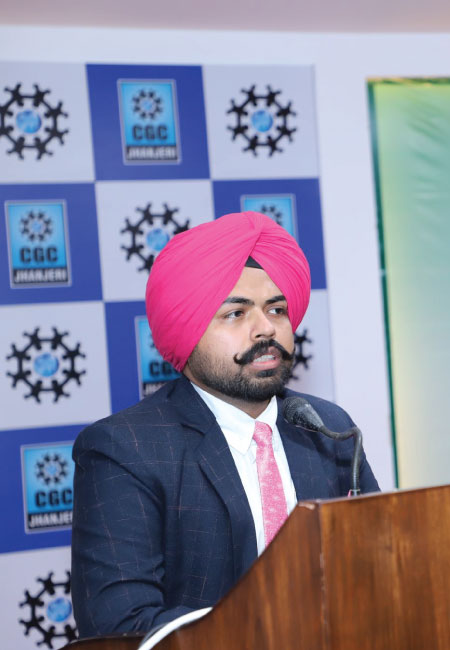
In the heartland of Punjab, amidst the vast expanse of mustard fields that shimmer like golden waves under the sun, where the air is thick with the earthy fragrance of freshly tilled soil and the hum of rural life beats steadily with the rhythm of the seasons, a quiet and profound transformation was beginning—not in grand halls of power or mechanized factories, but in the soul of a young boy named Davinder Pal Singh. Born in 1994 in the modest yet vibrant town of Nawanshahr, Davinder’s earliest days were shaped by the deep connection between land and life, tradition and hope.
From the very beginning, Dr. Davinder was not a passive observer of his surroundings; he was a deeply curious child, drawn instinctively to the natural world around him. He watched the farmers with admiration—their hands roughened by toil, their eyes alert to the subtle signs of the weather and soil. To him, each season told a story, and each crop was a living lesson. This upbringing instilled in him a profound respect for the cycles of nature and the hardworking people who stewarded the land, laying the foundation for his lifelong commitment to agriculture.
His home was a crucible of values—humility, diligence, and a quiet strength. These principles, modelled by his parents and elders, became the roots from which his character would grow. They nurtured not just his mind but his heart, teaching him that true success came from dedication and service rather than mere accolades. It was in this environment, rich with simple wisdom and honest labor, that Dr. Davinder’s dream quietly took shape—one rooted in education, purpose, and a desire to make a meaningful impact.
Dr. Davinder’s formal education began at Shiwalik Public School in Nawanshahr, a place far more than a building of classrooms—it was a nurturing ground where he first encountered the discipline of structured learning and the thrill of discovery. Though he was naturally reserved and soft-spoken, his mind was sharp and lively. While other children sought attention through noise, Dr. Davinder quietly absorbed knowledge, pondering the mysteries of life and the living world. His teachers recall a student who was consistently sincere, methodical, and respectful—one who never hesitated to ask thoughtful questions, not to impress, but to truly understand.
In his Class 10 board exams, Dr. Davinder earned a commendable CGPA of 7.8, a reflection of his steady effort and intellectual curiosity. However, it was during his 12th grade in the medical stream that his academic persona began to crystallize more distinctly. Scoring 73% in the CBSE examinations, he distinguished himself not by flamboyance but by depth of understanding and a growing fascination with the biological sciences. His interest was increasingly drawn to the study of life—from the cellular mysteries of plants to the broader systems of ecology—foreshadowing his future path as a scholar and practitioner of agricultural science.
Phase 2 : Cultivating Knowledge (2012–2016)
“Success is no accident. It is hard work, perseverance, learning, studying, sacrifice and most of all, love of what you are doing.”
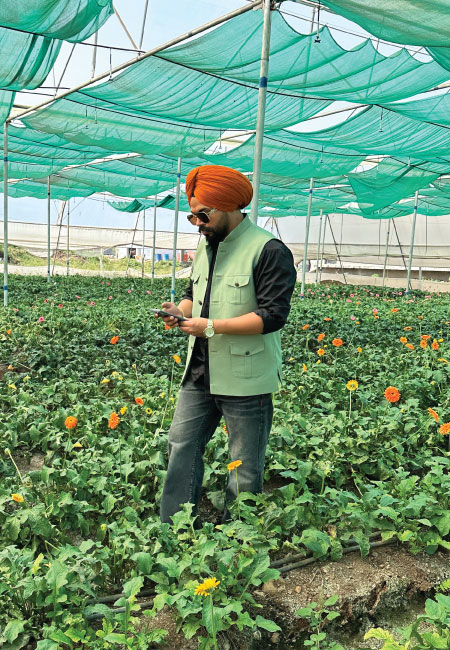
As the boy who had once wandered the mustard fields and watched the steady rhythms of rural life in Nawanshahr stepped into the realm of young adulthood, a new chapter of his journey began—one defined by purposeful learning, relentless effort, and a growing vision. In 2012, Dr. Davinder Pal Singh took a decisive and courageous step by enrolling in the Bachelor of Science in Agriculture program at the esteemed Government College, Hoshiarpur, affiliated with Panjab University, Chandigarh. At a time when many of his peers gravitated toward more conventional career choices, Dr. Davinder embraced a path less travelled, driven by a firm conviction that agriculture was not just a livelihood, but a profound mission—one that demanded knowledge, innovation, and heart.
The college campus quickly became far more than an academic venue; it was a vibrant ground where Dr. Davinder’s deep-rooted love for the land fused with the rigor of scientific study, creating a dynamic and immersive learning experience. From the outset, he plunged into an intensive curriculum that spanned soil science, crop production, plant physiology, entomology, and pest management, among other critical areas. His enthusiasm was palpable—not merely absorbing facts but seeking to understand the living mechanisms beneath the surface of agriculture. His academic journey was marked by consistent dedication and grit, culminating in a commendable overall performance with a percentage of 67.85%. Yet these numbers, though significant, only tell part of the story; they reflect the steadfast discipline, countless hours of study, and a passionate commitment to mastering his field.
But for Dr. Davinder, education was never confined to the pages of textbooks or the walls of lecture halls. His learning was deeply rooted in practical application and real-world impact, a philosophy he demonstrated brilliantly in his undergraduate project titled “Scope
and Establishment of Quality Jaggery (Gur) Making Unit Near Urban Area.” This project was far more than an academic assignment—it was a heartfelt endeavor that blended scientific acumen with social empathy and entrepreneurial foresight. Recognizing the challenges faced by farmers—unpredictable market prices, exploitation by middlemen, and the erosion of traditional, sustainable practices—Dr. Davinder proposed a model that aimed to revive and modernize the production of gur, a culturally significant and economically vital product.
His vision for the project went beyond efficiency and profit; it was about empowering rural communities by bridging age-old artisanal methods with contemporary business strategies. By focusing on quality assurance and urban proximity, the project sought to create sustainable economic opportunities while preserving a cherished cultural craft. This initiative highlighted Dr. Davinder’s growing understanding that true agricultural progress requires not just scientific knowledge but also a deep connection to community needs and environmental stewardship.
Phase 3 : Sowing Excellence (2016–2018)
“The function of education is to teach one to think intensively and to think critically. Intelligence plus character—that is the goal of true education.”
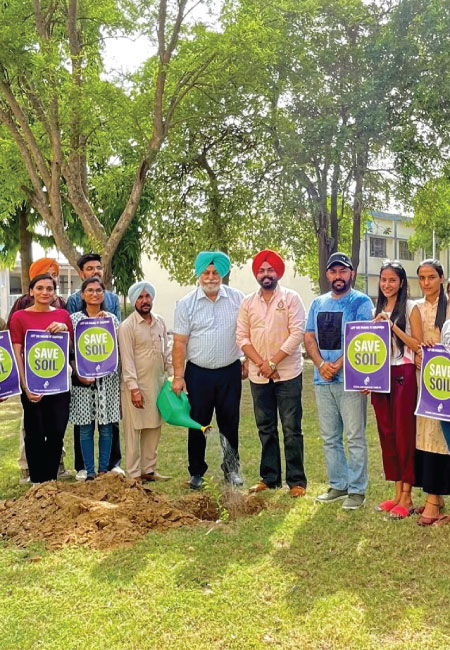
At a pivotal stage in life when many of his contemporaries were contemplating further studies or opting for less demanding career paths, Dr. Davinder Pal Singh chose a path marked by courage, dedication, and a profound sense of responsibility. In August 2016, barely 22 years old, he embraced the significant role of Lecturer in Agriculture at KMS College, Dasuya—a role he would inhabit with relentless passion and integrity for the next two transformative years. This chapter of his journey was not about personal glory or accolades; it was about nurturing the next generation of agricultural minds, instilling in them the knowledge, critical thinking skills, and ethical values necessary to carry forward the torch of sustainable farming in India.
Day after day, Dr. Davinder stood at the classroom blackboard, transforming it into a stage where ideas flourished and curiosity was kindled. His teaching was far more than the rote delivery of facts; it was a deliberate act of awakening young minds to the complexities and possibilities within the field of agriculture. With infectious enthusiasm and mastery over subjects such as soil nutrient cycles, crop phenology, and pest management, he engaged his students not just intellectually but emotionally—encouraging them to view agriculture as a living, breathing ecosystem that required both scientific rigor and heartfelt stewardship. His lectures resonated deeply, sparking a spirit of innovation and service among students who left his classes with far more than technical knowledge—they carried away a vision for transforming rural livelihoods through sustainable practices.
Dr. Davinder’s classroom was more than a conventional learning space; it was a vibrant laboratory of ideas, experiments, and dreams. Drawing from his own expanding understanding of agricultural science, research findings, and direct field observations, he integrated practical insights that connected textbook theory with real-world application.
His students explored how traditional farming could evolve—by harnessing science and technology to improve efficiency, protect the environment, and enhance farmers’ economic resilience. Under his guidance, academic lessons translated into tangible solutions, fostering a new generation equipped to address Punjab’s—and India’s—agricultural challenges with creativity and responsibility.
Despite his youth, Dr. Davinder carried himself with the maturity and humility of a seasoned educator. His colleagues admired his dedication and professionalism, while his students respected the approachable mentor who welcomed questions, encouraged experimentation, and valued diverse perspectives. He was not content with merely teaching established knowledge; he inspired critical inquiry and fostered a mindset that questioned the status quo and sought continuous improvement. This commitment to intellectual rigor combined with genuine empathy made Dr. Davinder more than a lecturer—he was a catalyst for change, a role model whose character illuminated the path forward.